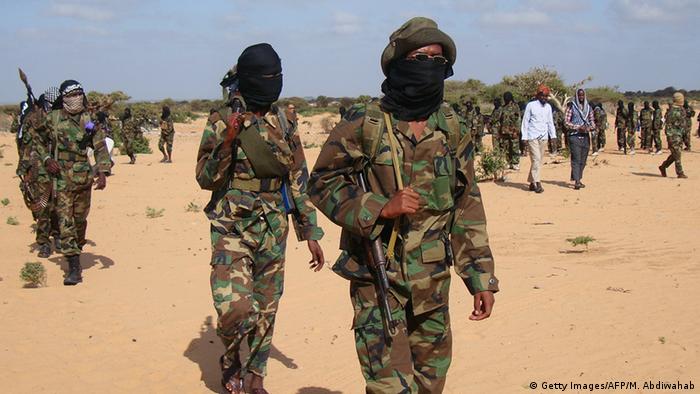Security and Situational Awareness, Open Source Intelligence, Cybersafety and Cybersecurity, Threat Alerts, Geopolitical Risks, etc. Vanguard Of A Countering Violent Extremism Advocacy: "Nigerians Unite Against Insecurity, Terrorism and Insurgency". For Articles, Press Releases, Adverts etc, Email: donnuait(a)yahoo.com, Twitter: @DonOkereke.
Saturday 12 September 2015
Is The Terrorism Threat Exaggerated Aftermath of 9/11?
How, Why The UK Government Used A Drone To Kill UK Citizens
 |
Wednesday 26 August 2015
Ghanaian Family Traumatized As Graduate Son Joins ISIS
Monday 24 August 2015
Europe Is Facing New Uncertainty in Fight Against Terrorism
Wednesday 19 August 2015
President Buhari Orders Probe On How A Wanted ISIS Leader Got Nigerian Visa
How Do You Spot The Next Terrorist?
Tuesday 18 August 2015
Terrorism: Bomb Blast Rocks Thailand's Capital - Bangkok, 19 Killed, More Than 120 Injured
Friday 14 August 2015
Terrorism: US Jails Nigerian Al-Qaeda Member - Lawal Babafemi, 22 Years
 |
| Lawal Babafemi |
ISIS Releases Personal Data, ‘Hit List' of 1,500 US Military Personnel’ Obtained From Hacking
Thursday 6 August 2015
Monday 22 June 2015
U.S Charleston Church Shooting: ''We Avoid the Word Terrorism When The Victims are Black...''
 |
| Dylann Roof - Suspect |
Thursday 18 June 2015
Terrorism: Kenya Police Issue $100,000 For The Capture A German Al-Shabab Fighter
Kenya police have issued a $100,000 bounty for the capture of a German man accused of fighting with al-Shabab in an attack on a military base. Two Kenyan soldiers and 11 al-Shabab militants were killed in the attack.
Convert Andreas M. from Bonn, who uses the alias Abu Nusaybah, is alleged to have taken part in the attack in Lamu county in Kenya on Sunday, which left two Kenyan soldiers and 11 al-Shabab fighters dead.
Andreas M., 42, was injured during Sunday's attack and is now on the run, according to information from security forces.
Attacks by al-Shabab in Kenya rise
Sunday's attack is part of a growing number of assaults in Kenya carried out by the Somalia-based Islamist al-Shabab group.
Al-Shabab fighters killed 148 people in an attack on Kenya's Garissa University College in April.
Another foreigner, 25-year-old Thomas Evans from the UK, also took part in Sunday's assault and was killed in the fighting. Evans traveled to Somalia to join the militant group in 2012.
The reward for the capture of Andreas M. is part of a police campaign known in Kiswahili as Kaa Chonjo Usinyamaze ("Be alert, Don't Keep Quiet"), which was launched to tackle the threat from the jihadists.
Andreas M. disappeared in Kenya in 2011, before announcing that he had joined al-Shabab in the spring of 2012. He is initially thought to have got in contact with the group via Bonn's Islamic scene, and then traveled to Pakistan before being arrested by country's secret service.
He spent nine months in a local jail, but said afterwards that prison had only cemented his beliefs.
Andreas. M's Eritrean wife and their daughter also traveled with him in 2011 to Somalia. The mother and daughter are thought to be staying in an area of Somalia still controlled by al-Shabab.
Source:
Deutche Welle
Wednesday 27 May 2015
Al-Qaeda Operative Pleads Guilty to Terrorism Charges
FBI Push To Weaken Cell Phone Security, Skirt Encryption Alarms Privacy Advocates
Friday 22 May 2015
FBI Admits No Major Cases Cracked with Patriot Act Snooping Powers
FBI agents can’t point to any major terrorism cases they’ve cracked thanks to the key snooping powers in the Patriot Act, the Justice Department’s inspector general said in a report Thursday that could complicate efforts to keep key parts of the law operating.
Inspector General Michael E. Horowitz said that between 2004 and 2009, the FBI tripled its use of bulk collection under Section 215 of the Patriot Act, which allows government agents to compel businesses to turn over records and documents, and increasingly scooped up records of Americans who had no ties to official terrorism investigations.
The FBI did finally come up with procedures to try to minimize the information it was gathering on nontargets, but it took far too long, Mr. Horowitz said in the 77-page report, which comes just as Congress is trying to decide whether to extend, rewrite or entirely nix Section 215.
Backers say the Patriot Act powers are critical and must be kept intact, particularly with the spread of the threat from terrorists. But opponents have doubted the efficacy of Section 215, particularly when it’s used to justify bulk data collection such as in the case of the National Security Agency’s phone metadata program, revealed in leaks from former government contractor Edward Snowden.
The new report adds ammunition to those opponents, with the inspector general concluding that no major cases have been broken by use of the Patriot Act’s records-snooping provisions.
“The agents we interviewed did not identify any major case developments that resulted from use of the records obtained in response to Section 215 orders,” the inspector general concluded — though he said agents did view the material they gathered as “valuable” in developing other leads or corroborating information.
The report said agents bumped their number of bulk-data requests under Section 215 from seven in 2004 to 21 in 2009 as a result of technological advances and legislative changes that the intelligence community believed expanded the reach of the law.
Increasingly, that meant scooping up information on those who weren’t targets of a terrorism investigation, Mr. Horowitz said. He said that while Section 215 authority allows the government to do that, the FBI needed more checks to make sure it was using the power properly.
“While the expanded scope of these requests can be important uses of Section 215 authority, we believe these expanded uses require continued significant oversight,” he concluded.
The report was an update to a previous study done in 2008 that urged the department to figure out ways to minimize the amount of data it was gathering on ordinary Americans even as it was targeting terrorists.
In Thursday’s report Mr. Horowitz said the administration finally came up with procedures — five years later. He said it never should have taken that long but that he considers that issue solved.
The report was heavily redacted, and key details were deleted. The entire chart showing the number of Section 215 requests made from 2007 through 2009 was blacked out, as was the breakdown of what types of investigations they stemmed from: counterintelligence, counterterrorism, cyber or foreign intelligence investigations.
Section 215 of the Patriot Act is slated to expire at the end of this month. The House, in an overwhelming bipartisan vote, passed a bill to renew it but also to limit it so the government could no longer do bulk collection such as the NSA phone data program. That legislation is known as the USA Freedom Act.
But Senate Republican leaders have balked, insisting the NSA program and Section 215 should be kept intact as is.
Majority Leader Mitch McConnell, who is leading the fight to protect the NSA program, is counting on his opponents not being able to muster the 60 votes needed to pass the bill, leaving them with the choice of either extending Section 215 or seeing all of the powers expire — including those that would go after specific terrorist suspects. Mr. McConnell believes that, faced with that choice, enough of his colleagues will vote to extend all of the powers.
FBI Director James B. Comey asked Congress this week to make sure Section 215 and two other parts of the Patriot Act, also slated to expire at the end of the month, are preserved. Those other powers include the ability to target lone wolf actors and to switch wiretaps if suspects switch their phones.
As for Section 215, Mr. Comey said Congress should at least preserve the power to go after individuals’ records.
“If we lose that authority, which I don’t think is controversial with folks, that is a big problem,” he said Wednesday at a forum at the Georgetown University Law Center.
But most of the Section 215 debate has revolved around bulk collection. Earlier this month a federal appeals court ruled that the Patriot Act does not envision the kind of phone program the NSA has been running, which gathers and stores five years’ worth of records of the numbers, dates and durations of calls made in the U.S.
For anti-bulk surveillance advocates, Thursday’s report further undermines Section 215.
“This report adds to the mounting evidence that Section 215 has done little to protect Americans and should be put to rest,” said American Civil Liberties Union Staff Attorney Alex Abdo.
Bulk data collection creates false leads, ties up investigative resources and, essentially, undermines national security, said Stephen Kohn, an attorney at Kohn, Kohn & Colapinto, LLP and advocate for government whistleblowers. Also, increased FBI dependency on that bulk data collection indicates that the agency is lacking the appropriate resources for conducting successful counterterrorism operations, Mr. Kohn said.
“They have a large amount of agents who are working counterterrorism that have no human resources, no leads, no infiltrations, so they have nothing else to do,” he said. “In other words, when they staffed up and made [counterterrorism] a major priority, these agents need to do something. And they’re doing what they know to do, and that’s electronic surveillance.”
But former FBI agents said opponents wanted to callously cripple one of the government’s investigative agencies by depriving it of a critical data collection tool at a time of new terror threats.
“ISIS is singing a siren song, calling people to their death to crash on the rocks — and it’s the rocks that ISIS will take credit for,” said Ron Hosko, president of Law Enforcement Legal Defense Fund and former assistant director of the FBI. “They’re looking for those who are disaffected, disconnected and willing to commit murder. So if we’re willing to take away tools, OK, congressman, stand behind it [and] take the credit for putting the FBI in the dark.”
Source:
Washington Times
Wednesday 20 May 2015
CIA Declassifies Documents Retrieved From Osama Bin Laden Raid
Tuesday 19 May 2015
How Boko Haram Cultivates Girls for Suicide Bombing Missions - Chilling Story
Wednesday 13 May 2015
Terrorism: Trial Of Nyanya Bombing Suspects Stalled Again
 The trial of Aminu Ogwuche and five others suspected to have masterminded a bomb blast at Nyanya Motor Park in the outskirts of Abuja, Nigeria’s capital, on April 14, 2014, has again failed to commence.
The trial of Aminu Ogwuche and five others suspected to have masterminded a bomb blast at Nyanya Motor Park in the outskirts of Abuja, Nigeria’s capital, on April 14, 2014, has again failed to commence.















.jpg)